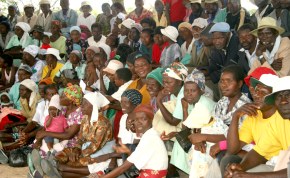More than 10 brands of bottled water being sold in various shops pose a health risk to unsuspecting consumers as they have not been approved by the Standards Association of Zimbabwe.
This comes in the wake of a study by researchers from the University of Zimbabwe and Masvingo Polytechnic which showed that some companies were selling water with high levels of nitrites that are responsible for cancer in humans.
The experts concluded that the bottled water also contained viable bacteria and heavy metals at levels that exceed limits set by the World Health Organisation Guidelines for Drinking Water Quality.
According to the experts: Nitrites are transformed to amines and amides resulting in the formation of nitrosamines which have been found to cause gastric and oesophagal cancer. In infants, nitrites compete with oxygen for active sites on haemoglobin resulting in oxygen deprivation. For the safety of consumers, the nitrite levels should fall below the recommended maximum limit.
A comparison of the list of brands approved by SAZ and those being sold in shops and by vendors in Harare’s Central Business District showed that at least 10 brands were not among the 22 approved by SAZ.
SAZ certifies bottled water according to minimum standards set by the Ministry of Health and Child Care.
The standards body has certified 22 brands since 2011 although the certification of three on the list expired in March this year.
The three whose certification has expired are Tanganda, Schweppes and Mukati Investments.
SAZ director-general Mrs Eve Gadzikwa said her organisation had an obligation to continuously inform the public on the status of bottled water sold to them.
“Water is certified after satisfying the SAZ national standard ZWS 457:1995,” she said. “As part of the process towards certification, bottling companies are required to meet the minimum requirements set by the Ministry of Health.
“SAZ undertakes regular checks on the bottled water company to verify continuous compliance to the standard. SAZ has an obligation to regularly publish the status of certified, suspended and withdrawn bottled waters.”
SAZ laboratories are accredited for Water Chemical Analysis testing in accordance with ISO/IEC 17025.
Consumer Council of Zimbabwe executive director Ms Rosemary Siyachitema said her organisation was carrying out its own investigations into the matter.
“We saw your article (on the research on bottled water by academics) and we are also carrying out our own investigations into the matter,” she said.
The CCZ has, however, called on Government to speed up the enactment of the Consumer Protection Act as part of measures to protect consumers from unscrupulous business practices.
The country does not have legislation to safeguard the rights of consumers.
Source: all africa



